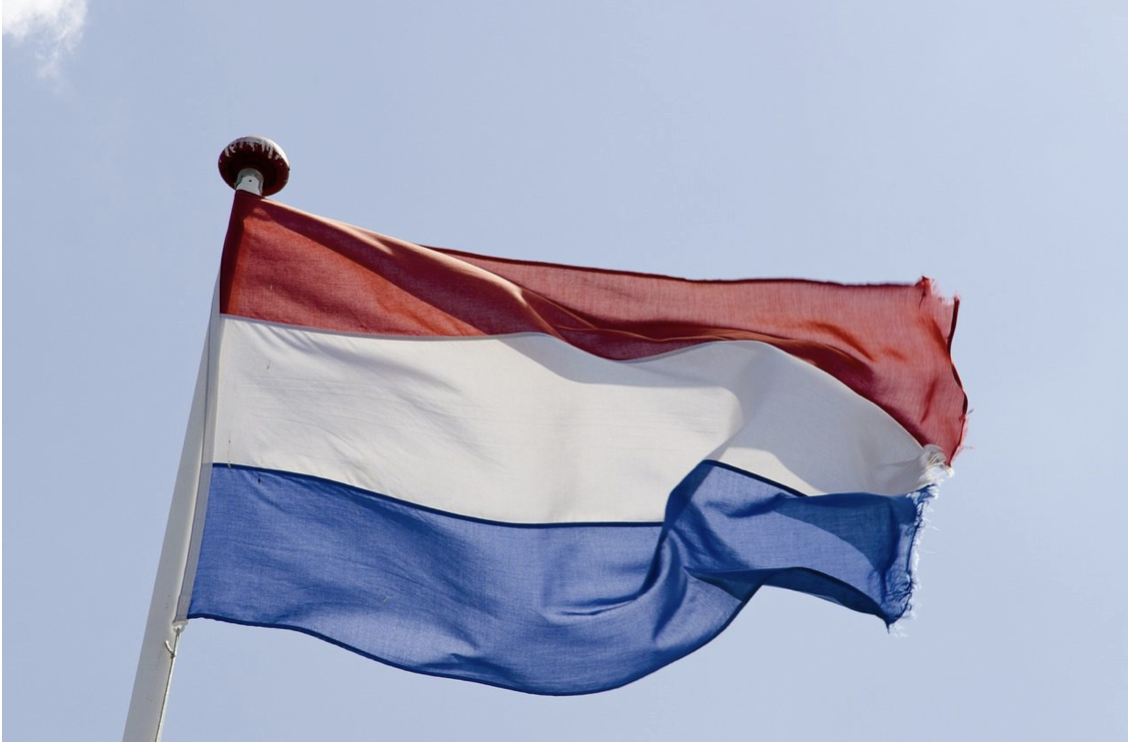World
Why is Sports Betting so Popular in the Netherlands?

Only companies that are physically located in the Netherlands and websites that are hosted within the country are authorized to provide their services to customers located in the Netherlands.
As a direct result of this, the number of online casinos and sports betting firms that are ready to host their web pages in the Netherlands is rather small. This resulted in a significant shift toward “illegal” forms of gambling.
In an effort to mitigate the impact of this factor, the Dutch government has liberalized its gambling rules to the point where it now welcomes some of the most well-known gaming brands in the world.
On the other hand, this action may put you in jeopardy because you can never be sure when a significant penalty may be levied against you.
Online Gambling Law in The Netherlands
To begin, it is important to make it clear that, just like gambling at land-based establishments, if you want to place bets online from NL you can do so legally as well. Since the initial Betting and Gambling Act (also known as the “Wet op de kansspelen”) was enacted in 1964, this has been the situation in the Netherlands.
In the decades that have passed since then, obviously, there have been substantial changes to the landscape. Because of this, it was determined in 2019 that all these rules would be modernized with the help of a brand-new act pertaining to remote gambling.
It wasn’t until the springtime of 2021 that this legislation was really put into effect because of delays caused by Covid; nonetheless, to the greatest of our knowledge, organizations that engage in sports betting are now eligible to submit applications for licenses that will enable them to operate inside the Netherlands.
All of the sports betting companies in the country are subject to stringent regulation by an independent entity, which ensures that these businesses adhere to the highest possible standards of safety and equity.
This is similar to the situation in other major nations that offer online gambling. In this scenario, the Netherlands Gaming Authority, often known as the “Kansspelautoriteit,” is in charge of providing oversight.
Most Popular Sports to Bet on in the Netherlands
In spite of the lack of clarity in Dutch law addressing online gambling, Dutch gamblers nonetheless spend around 500 and 800 million euros annually on online esports gambling.
Football is unquestionably the most popular sport on which bets are placed, accounting for a whopping 70% of the total volume of wagers.
With such a large number of talented football players as well as a national team that has consistently been ranked among some of the best in the world, it is simple to comprehend why football has become so popular in the Netherlands.
The Eredivisie receives the majority of the betting because it is the domestic league in the Netherlands. On the other hand, soccer fans place just as many wagers on other European competitions such as the Premier League and La Liga.
The next most popular sport is hockey, and then volleyball comes pretty close behind it. Cycling comes in at number four, which should come as no surprise given that the bicycle is a common mode of transportation in the Netherlands.
As a result, the majority of cyclists are avid followers of major contests such as the Tour de France and Il Giro. Any bettor will be pleased to have such a wide variety of alternatives available to them in the highly different environment that is online sports gambling in the Netherlands.
Online Sports Betting in The Netherlands in Numbers
Given that we are discussing a market that has not yet been subject to regulation, an estimate of €800 million suggests that there is potential in the market.
The United Kingdom, as well as Italy, currently holds the top two spots in Europe in terms of money generated from gambling, but the Netherlands has a good chance of moving up to the third place.
It is difficult to acquire accurate demographic data because there isn’t a single regulation that regulates the activities that operators engage in. However, the majority of people who bet on sports online are between the ages of 25 and 50, and over 82 percent of these individuals are men.
Games found in online casinos are the most popular among women, while other gambling options, such as bingo and keno, are less popular and should not be considered.
It is an interesting phenomenon to note that, despite the fact that the state has a monopoly over domestic casino & betting business, only a relatively small number of gamblers choose to place their wagers within these establishments. Despite this, it does not appear that the authorities are in a hurry to ease restrictions on the market by passing laws that are transparent and supportive.
World
Turkish Textile Giant Sun Textile Solution Proposal for Drought

While the World Health Organization (WHO) and the United Nations (UN) are seeking solutions to combat drought through various projects, Ekoten Textile, a subsidiary of Turkey’s textile giant Sun Textile, has developed a groundbreaking project in collaboration with a technology startup to minimize the intensive water consumption in the textile industry. This pioneering project, the first of its kind globally, will enable the recycling and reuse of up to 90% of the water used in textile production.
Drought is one of the most pressing issues facing the world today. According to WHO data, 40% of the global population is struggling with water scarcity. By 2030, up to 700 million people could be forced to migrate due to drought. The unconscious use of water in global production processes plays a significant role in the rapid depletion of clean water resources.
The textile industry is one of the sectors with the highest water consumption. In Turkey, while the food industry consumes 22% of the water used for industrial purposes, the textile sector follows closely with 18%. For instance, producing an average of 40 tons of products daily requires 2,500 tons of water, equivalent to the daily water consumption of approximately 10,000 people.
CLEAN WATER RESOURCES FOR HUNDREDS OF THOUSANDS OF PEOPLE EVERY DAY!
In textile production, where clean water resources are heavily consumed, the innovative success of the Turkish company stands out as a global best practice. This initiative will shape the future of the industry. The wastewater recycling project, developed through intensive R&D efforts, will ensure that over 90% of the required water is sourced from recycled supplies.
The reuse of wastewater in production will transform the fate of countries operating in the textile sector. By preventing the use of clean water resources for textile production, this project will free up clean water sources that can meet the daily needs of hundreds of thousands of people.
R&D ACTIVITIES IN 38 COUNTRIES WITH 380 PARTNERS!
Sun Textile places great emphasis on R&D activities, conducting research and development efforts with 380 partners across 38 countries. Sun Textile and its subsidiary Ekoten Textile export nearly 90% of their production, solidifying their identity as a leading exporter. The company ships products to numerous destinations worldwide, including European countries, the UK, and the US. Sun Textile, the leading ready-to-wear exporter in the Aegean Region, achieved a consolidated turnover of 250 million euros in the third quarter of 2024, continuing its active growth trajectory.
OFFERING CUSTOM DESIGNS TO CUSTOMERS
Sun Textile provides its own designed collections to leading brands in Europe and the UK. Ekoten Textile, its subsidiary, is among the most respected knitted fabric manufacturers in Turkey and Europe.
With a dedicated sales team for each major customer group and five design offices in three different countries, Sun Textile creates designs tailored to its customers’ needs. Its largest clients include the Inditex Group, H&M, Jimmy Key, Tesco, Kiabi, Marks & Spencer, and Next.
Sun Textile also extends its sustainability approach to social responsibility, notably for its high ratio of female employees. The company, which went public in 2022, is also listed in dividend indexes.
-

 Tech4 years ago
Tech4 years agoEffuel Reviews (2021) – Effuel ECO OBD2 Saves Fuel, and Reduce Gas Cost? Effuel Customer Reviews
-

 Tech6 years ago
Tech6 years agoBosch Power Tools India Launches ‘Cordless Matlab Bosch’ Campaign to Demonstrate the Power of Cordless
-

 Lifestyle6 years ago
Lifestyle6 years agoCatholic Cases App brings Church’s Moral Teachings to Androids and iPhones
-

 Lifestyle4 years ago
Lifestyle4 years agoEast Side Hype x Billionaire Boys Club. Hottest New Streetwear Releases in Utah.
-

 Tech6 years ago
Tech6 years agoCloud Buyers & Investors to Profit in the Future
-

 Lifestyle5 years ago
Lifestyle5 years agoThe Midas of Cosmetic Dermatology: Dr. Simon Ourian
-

 Health6 years ago
Health6 years agoCBDistillery Review: Is it a scam?
-

 Entertainment6 years ago
Entertainment6 years agoAvengers Endgame now Available on 123Movies for Download & Streaming for Free
